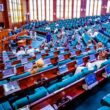Former Nigerian presidential candidate, Peter Obi, has sounded an urgent alarm about the escalating hunger crisis in the country.
In a statement released on World Food Day, Obi highlighted the severe food insecurity affecting millions of Nigerians, as rising food prices continue to burden households across the nation.
Obi expressed concern over the worsening situation, stating, “Severe hunger has now become an unfortunate member of many households in Nigeria.”
According to him, an increasing number of families are no longer able to afford basic food with their current income, pushing the nation into a deepening food crisis.
Food inflation in Nigeria has been on the rise for several years, but Obi’s remarks emphasized that the situation has now reached a breaking point.
He described the current state of affairs as “heartbreaking,” drawing attention to the fact that, despite Nigeria’s vast agricultural potential, millions of people are suffering from acute food shortages.
Obi attributed this problem to the lack of attention given to agriculture and the insecurity that has hindered food production in the country.
In his statement, Obi pointed to a World Bank Food Security Update, which likened Nigeria’s food crisis to conditions seen in war-torn countries like Yemen.
The Global Hunger Index, Obi noted, now ranks Nigeria among the 20 hungriest nations in the world. A staggering 31.8 million Nigerians are reportedly facing severe food shortages, with 15.6 million children among those most affected.
Looking ahead, Obi highlighted a United Nations forecast, which predicts that by 2030, up to 64% of Nigerians – roughly 82 million people – could experience hunger if immediate action is not taken.
Obi called for a decisive shift in focus from consumption to production, advocating for substantial investment in agriculture as a means of addressing the crisis.
He stressed the need for the country to tap into its untapped agricultural potential, particularly in the northern region, where large tracts of land remain unused.
In his comparison, Obi pointed to the Netherlands, a small country that generates over $100 billion annually from agricultural exports.
He suggested that Nigeria could achieve similar success by adopting modern farming techniques and addressing the insecurity that has hindered agricultural development.
He concluded by urging the Nigerian government to make food security a top priority. Obi warned that hunger is not just an economic issue, but a national crisis that threatens the country’s stability.










